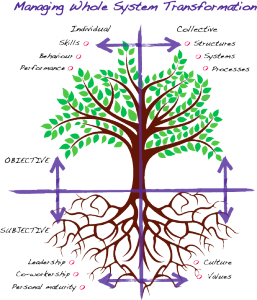In an organization, human resources play a key role because HR is all about recruiting, training and monitoring employee performances and can impact organizational changes in many ways. The critical role that HR plays is the strategic partner that helping the management managing changes within the organization. Two ways that HR can play a strategic role in managing change for the organization are provided respectively in the following contents.
First of all, getting everyone from the top to bottom in an organization to work effectively to contribute to the success of the business is a strategic role of human resources in helping managing changes (Bratton, D. (2001)). Therefore, HR ought to ensure that the vision and culture are clearly understood by employees through appropriate communications. Additionally, HR should conduct appropriate trainings on employees to motivate employees in the change management programs to help the organization create and maintain competitive advantages. HR needs to ensure that employees collaborate with each other and the value is created through the commitment to fostering organizational goal and performance according to the CVF framework.
For example, communication is the most important part during the cultural change of Oticon, a Danish professional high-quality hearing aid manufacturer. Employees clearly understand the culture of the organization on and engaged in the change management, contributing to the success of the change of Oticon (Kao, J. (2001)).
Second, HR should get the strategy implemented effectively in the organization (Bratton, D. (2001)). In brief, HR should have the ability to recognize when and how to change. This is seen as a must-have ability of human resources by Cornell University (Change Management and Organizational Effectiveness for the HR Professional. (2013, October 14)). How we measure whether HR meets the future needs of the organization is a leverage that HR succeeds in both formulation and implementation of the strategy.
Here is an example of my Aunt Ms. Li, who is an HR manager of a hospital in Sichuan province in China. She is in charge of the whole HR department and the HR department deals with professional and technical personnel management. Specifically, they are responsible for drafting the hospital middle management cadre qualification, competition for employment, assessment and other programs in relevant to the top management ‘s concepts. In addition, they care about employees, encourage personnel development of employees, as well as supervising their performances. At the end of the year, HR measures whether strategies are achieved with any efforts and summarizes employee performance evaluation table and sets up meetings with problem employees to discuss on issues they have.
As HR plays a strategic role in the organization, they should assure that HR strategies are aligned to the business strategies. This is the challenging part, because HR has to make sure the strategies are realistic. However, many critics have called attention to that HR plays more as an administrative expert than a strategic partner (Lawler, E. (2014, February 11)). In addition, from 1995 to 2010, data showed that HR spent most of their time dealing with implementation and administration of HR strategies and performances.
References
Bratton, D. (2001). Chapter8: Human Resources and Managing Strategic Change. In Best practices: Strategic human resources management (pp. 8-15). Toronto: Carswell.
Kao, J. (2001). Oticon (A), 1-18.
Change Management and Organizational Effectiveness for the HR Professional. (2013, October 14). Retrieved November 17, 2015, from http://www.cornellhrreview.org/change-management-and-organizational-effectiveness-for-the-hr-professional/
Gardner, N., Gardner, D., & Wolf, W. (2011, March 1). Question for your HR chief: Are we using our ‘people data’ to create value? Retrieved November 17, 2015, from http://www.mckinsey.com/insights/organization/question_for_your_hr_chief_are_we_using_our_people_data_to_create_value
Lawler, E. (2014, February 11). Retrieved November 17, 2015, from http://www.forbes.com/sites/edwardlawler/2014/02/11/hr-should-own-organizational-effectiveness/


